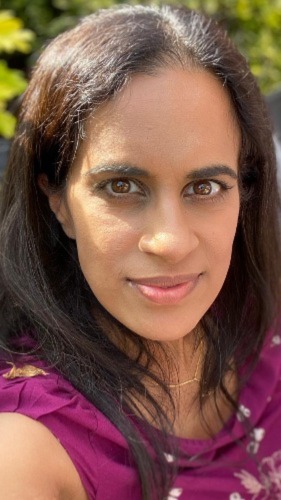I ’m Dipa Kamdar, a pharmacy practice teaching fellow and MPharm Course Director at Kingston University. I am also a mum of three, female and of Indian ethnicity.
’m Dipa Kamdar, a pharmacy practice teaching fellow and MPharm Course Director at Kingston University. I am also a mum of three, female and of Indian ethnicity.
Having experienced my own lack of belonging on occasion, I decided to take on the mantle of inclusivity lead at Kingston. It can be difficult to get people to see that we are not just determined by one characteristic, especially in the multi-ethnic, multi-gender society we now live in. At Kingston University, we have a rich and diverse student body, and this is luckily reflected in the pharmacy department staff. Despite this, for some staff and students, this does not mean they feel like they belong. If you don’t feel included, are you inclined to be inclusive yourself whether it is at university working with your colleagues or in the workplace dealing with patients?
Initiatives for inclusivity
Currently, we have several ongoing initiatives to improve inclusivity both in our department and in our curriculum. I send monthly emails to staff and students to raise awareness of important cultural dates and health and wellbeing campaigns. People are encouraged to wear pronoun badges. Colleagues have attended an introductory equity, diversity and inclusion session and subsequently more specific sessions on anti-racism, LGBTQ+ and active bystander.
Representation in curriculum
In the curriculum, there is a spiralling theme of trans healthcare ranging from ethical dilemmas to clinical implications of the use of hormones in trans individuals, delivered in lectures and workshops. Throughout our curriculum, we have adapted our teaching to ensure our scenarios are representative, for example, presentation of various conditions in different ethnicities. Inclusivity toolkits are also available for staff to reflect on their learning and teaching.
The concept of health inequalities and the impact on people and patient care is introduced in the first year. This year, I am introducing a student-led workshop where second-year students can collaborate, present, and lead a debate on topics such as inequalities in cardiac healthcare, whiteness in clinical trials and disparities in mental health and race. During the third year, I lead a health inequalities workshop with case studies written and delivered by people with lived experience, including race in maternal health, disability, gender identity and trans healthcare issues. Evaluation of these sessions showed positive feedback and significant improvement in knowledge of the topics discussed. Students also indicated they felt this was a safe environment to learn, discuss and reflect upon sensitive issues.
Giving students a voice
Based on this, I have organised a new workshop for both my colleagues and our first-year students based around the student voice called courageous conversations. If we allow students to feel included, involved and heard, both at university level and in the workplace but also relate this to how a patient might be feeling, I believe we can inspire our next generation of pharmacists to be more inclusive in their practice.
We want to encourage voices that express the diversity of lived experiences in the profession as part of our inclusion and diversity work. If you’d like to share your story, contact [email protected] or get involved through our ABCD group.